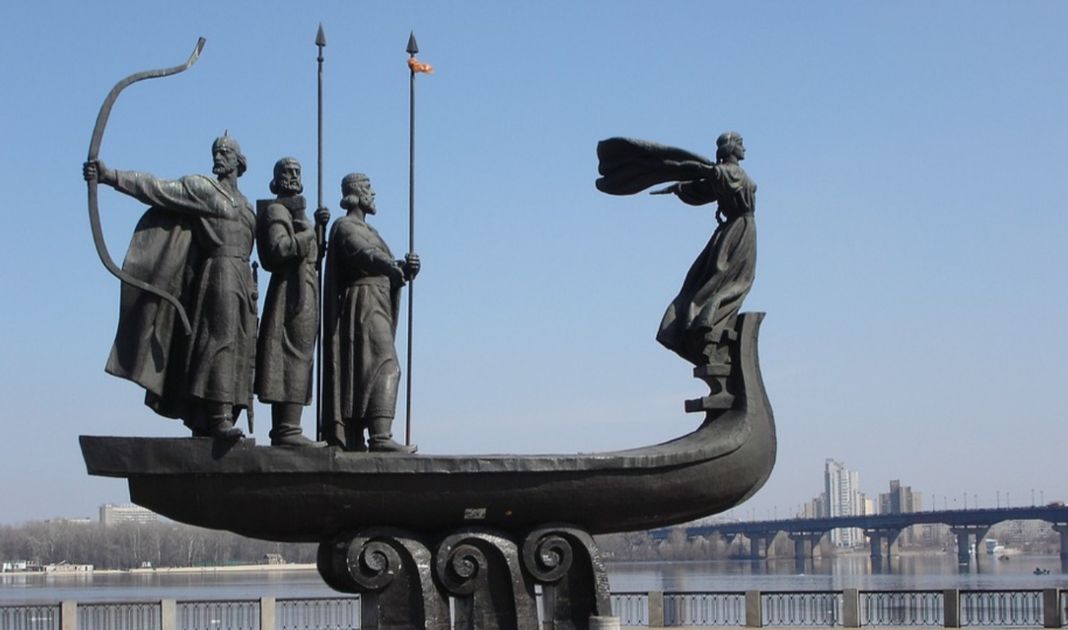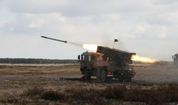Half a year which may prove crucial for Ukraine’s integration with NATO

(pixabay.com)
In his opinion, Ukraine is better prepared than in previous years: foreign exchange reserves are sufficient to defend the official hryvnia exchange rate (as in the budget projections – 27 Hryvnia to the dollar) and an agreement with the IMF provides for stabilising finances. On the latter issue, this was an important statement, because after the change of cabinet there was some speculation in the Ukrainian media that the new government might end the Honcharuk cabinet’s determination to reach an agreement regarding the payment of the next tranche under the cooperation program (5.5 billion dollars). Shmyhal said that two of the five agreement points, which have not yet been implemented, will enter into force in the next 2-3 weeks.
However, not everyone is so optimistic. The ending of the OPEC+ agreement and the beginning of an oil price war last week (plus the response of global financial markets) have given cause for concern everywhere. In the case of Ukraine, this meant a reversal of last year’s trend, which consisted of a strengthening of the hryvnia against the dollar and the euro. We are currently dealing with the withdrawal of investors from emerging markets with the weakening of the Ukrainian currency. Interventions from the Central Bank, which spent only USD 620 million from its reserves during the two days of the week ending, led to a temporary stabilisation of the exchange rate, however, the devaluation pressure is extremely strong. Admittedly, the deputy head of the Ukrainian Central Bank, Oleg Churiy, reassured in the media that the bank has no plans to limit the convertibility of the hryvnia and that the level of reserves is sufficient to counteract excessive depreciation of its exchange rate.
Nevertheless, worries about the stability of the Ukrainian financial system are growing.
Moods have been aggravated by information on the abrupt sell-off of Ukrainian GDP warrants, which fell almost 20% (19.2%) last week and are currently being sold on international financial markets at 66.1% of their nominal value (down from 107.5% two weeks earlier). The profitability of Ukrainian state eurobonds also jumped by 1.5 to 3%. All this may mean that Ukraine will have difficulties in satisfying its borrowing needs, or will have to take out loans on worse terms, which – in the final analysis – also boils down to an increase in budgetary burdens. In one of his first public appearances, Prime Minister Shmyhal repeated what had become one of the reasons for the resignation of the previous government: both in the past year and the first two months of this year, “the budget had recorded one of the worst results in the last five years”. Only in January and February.
16 billion hryvnia of planned revenues were not realised, of which 13 billion comes from lower than assumed revenues from customs duties, which indicates the total crisis of this area of administrative activity. But despite this, the new prime minister did not back down on the promises of indexing pensions and extending social spending. Some international experts observing the situation in Ukraine, such as Anders Aslund, believe that the anxiety of global finance has been strengthened by the recent moves of President Zelensky, above all the change of government, but also the dismissal of Prosecutor General Ruslan Ryaboshapka, who had been preparing a reform package targeted at the judiciary, which today seems the main barrier to the influx of Western investors.
These moves were interpreted as a disturbance in the reform policy and the will to adopt stable institutional rules of the game. The lack of clarity related to the affiliation of many new members of the government with Ukrainian oligarchic industrial groups has been reinforced by the general sense of chaos caused by the establishment of a cabinet with key positions left vacant. This is overlapped by the ambiguous declarations of the president himself and the observed erosion of his political base. The Servant of the Nation, in key issues last year holding a uniformly pro-reform position, now on no less important matters, such as the reform of the land trading system (release and admission of foreign investors) is no longer so internally coherent.
All this strengthens the anxiety of Western investors and means that Ukraine does not enter the global crisis strengthened – on the contrary, its situation seems much worse than a few months ago.
This is an important issue since Kyiv adopted, almost on the eve of the government solstice, a number of documents hammering out issues related to national defence, army reform and adaptation to NATO standards. This is the plan for modernising armaments for 2020-2022 which provides for the spending of 25.85 billion UAH, 90% of which is to be allocated to the purchase of arms and armaments from domestic producers, as well as the National Security Strategy approved by the Ukrainian Security and Defense Council in mid-February.
During the reconstruction of the government, there was also a change in the position of defence minister, with Andriy Zahorodniuk being replaced by retired general Andriy Taran.
This change, according to Ukrainian observers, is the result of the decision of one man, recently appointed head of the presidential administration – Andriy Yermak, who is the chief architect of Zelensky’s foreign policy. Yermak, who is implementing a plan to achieve peace with Russia in Donbas, would probably be more inclined to favor Taran, who is more a military diplomat and ministerial official than a military officer who knows the realities of the battlefield. It was also argued in Taran’s favour that he had experience in conversations in the Minsk Format.
Ukrainian observers are of the opinion that this nomination shows, on the one hand, that President Zelensky is not interested in defence issues and army reform, but on the other that he is more interested in peaceful political solutions than in adapting the Ukrainian armed forces to NATO standards, to which Zahorodniuk strove persistently. The latter, moreover, was for this reason the object of lively criticism of the Ukrainian military, dissatisfied with the pace and depth of change. Taran is much more moderate in this respect. Anyway, in one of his public statements, after being nominated for a ministerial position, he said that the goal set by the previous ministry’s management of “completely adjusting the Ukrainian army to NATO standards is ambitious, but not realistic.” In his opinion, one should rather focus on achieving the state of “maximum capacity for cooperation with NATO forces”. This shift of accent is symptomatic. While the main goal of the previous team leading the Ukrainian Ministry of Defence, as he himself wrote in a long text, which is a kind of testament summarising the six-month efforts of Minister Zahorodniuk, was to obtain in September this year the status of a participant in the NATO Enhanced Opportunity Partnership by quickly adapting to the standards of the North Atlantic Alliance – now it is not so certain.
Paradoxically, Zahorodniuk – who is not a military professional but a financier who gained his first experience in this “industry” as advisor to minister Stepan Poltorak (minister in the years 2014-2019) – followed a similar path as the “father” of Russian armed forces reform Anatoliy Serdyukov, who also implemented reforms and was therefore hated by military circles.
The difference between the experience of the Russian Federation and Ukraine boiled down not only to the disproportion in budgets they both had, but also, and perhaps above all, in that Serdiukov had 5 years and 8 months to prepare and start reforms, and Zahorodniuk only 7 months.
His successor, apart from the problems caused by the state of Ukrainian public finances and a clear reduction of Zelensky’s reformist enthusiasm and the natural opposition of military circles, to which Andriy Taran, being a professional military man, is bound, will also have to face a difficult political situation. This is primarily about the position of Hungary, which – in order to put pressure on Kiev regarding language policy towards minorities in Ukraine – has so far blocked work in the NATO-Ukraine format. Despite some announcements that the position of Budapest will be relaxed after the February visit to Kiev by Minister Péter Szijjártó, it has recently been tightened.
The head of the Hungarian Ministry of Foreign Affairs declared two days ago that Hungary would continue blocking the committee meeting until Kiev gave in on language issues.
It should also be remembered in this context that during the September vote in the Alliance, all member states must agree to change the status of Ukraine’s relations with NATO.
From the Polish point of view, therefore, we are dealing with the possibility of adverse events when it comes to defence issues of Ukraine. The weakening will to reform of the new government may be caused by problems related to the economic crisis and the condition of public finances. And all this is conducive to those NATO member states, which due to either unresolved disputes with Kiev or in the name of a “reset” with Russia may be in favour of a postponement (for another 3 years) of the granting to Ukraine of NATO status (EOP). Polish diplomacy – the successes of which should be recognised at least in the January declaration – after the visit of Minister Paweł Soloch in Kiev, on the establishment of a joint Polish-Ukrainian-Romanian brigade or that our representative, General Andrzej Fałkowski (next to Lithuanian, German, British, Canadian and American) is part of the Group of High Advisors for Military Reforms (Ukraine) (the Defence Reform Advisory Board – DRAB) in the current situation must join the vigorous action. The price of abandoning them may be a weakening of our defence potential in an important, eastern direction.
Autor
Marek Budzisz
Historian, journalist specializing in Russian and Post-Soviet East. Recently he published (in Polish) "The End of the Russian America. The Thoughts on why Russia Sold Alaska”.






Trwa ładowanie...